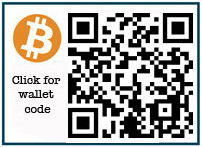Report from Taiwan Reflections from my visit to Taiwan the week before its momentous election
Johan Eddebo
On January 13, this Saturday, Taiwan’s presidential and parliamentary elections are simultaneously held. There’s a lot at stake. The independence movement is facing off with Koumintang and the reunification agenda, with the former poised to really entrench its influence in a geopolitically volatile situation. The election result will tip the scales in terms of Taiwan’s approach to China and the West during the years ahead, and due to the overall political context, the outcome could make a significant impact for the world at large.
What first strikes me when I land in Taipei is how untamed everything is.
The city seems to live a defiant life of its own that planning and governance can’t really subdue. Graffiti on derelict facades and abandoned buildings somehow organically synergize with skyscrapers and science parks. Dive bars and dirty game halls, replete with these accursed claw machines that never seem to work, sit side by side with brand stores and polished public institutions. And artistic expressions appear where one least would expect it, just like these paintings and sculptures of cathedrals that are hidden away so you can’t see them from the floor. I find an impossibly detailed temple in an anonymous alley next to a scooter repair shop.
The streets are tangibly dominated by minor businesses, most of them adapted to their own little niches. You can’t really find any franchises or chain stores, apart from FamilyMart (a popular Japanese kombini) or a few Starbucks here and there. Small businesses make up almost 99% of the private sector, which is extreme.
It seems to me that Taiwan’s market economy is so unregulated that the more visible giants have trouble finding a foothold. Nobody taxes the commerce on the markets or in the little restaurants where every exchange is cash-based. You basically don’t get receipts anywhere. And since the 80s, the government has intensely supported the small cap sector, especially within tech and IT, to bolster the high-technology exports that form the core of the nation’s economy. All sorts of small enterprises have gotten a great deal of leeway as a result.
But limited regulation also means that worker’s rights are relatively suppressed. The unions have really only been active since the end of martial law in the late 80s, and legislation has huge blind spots enabling sometimes extreme exploitation. As long as contracts are voluntary, almost anything goes.

And most people obviously have to work to survive. When I go down to one of these famous night markets to try out some local cuisine, business is intense. There are throngs of tourists, mostly from China, but quite a few from Japan. If you’re white or black, people tend to stare. Kids look at you as if they’ve seen a ghost.
The atmosphere is pretty special, streets are characterized by a combination of some sort of garish Asian kitsch and exaggerated Western urban aesthetics, sort of like Fritz Lang’s Metropolis. We buy fish balls from an old man. They’re like the Swedish kind, except… Tasty.
Later I find this incredible black pudding and grilled intestine in a food cart run by a sweet old lady. And these very same people are back to their same spots when I pass through again the very next day, probably without them having gotten much sleep. They’re probably not there just for fun. In Taiwan, if you haven’t been employed for a good number of years with a decent retirement plan, old age is not easy. Basic state support doesn’t even cover rent.

Central Taichung
The inadequate labour laws and social welfare are of course also related to the fact that China, Japan and the West for more than a hundred years have exploited Taiwan as some sort of industrial park for the outsourcing of key production. This in turn connects with the colonial tug-of-war held around this strategically important piece of real estate for four centuries.
Taiwan was first industrialized under Japan’s colonial dominion during the end of the 19th century with the purpose of providing the empire with foodstuff and raw material. When Taiwan later severed this relationship through US support, they basically only substitued one sovereign for another, and the West assumed the same role as Japan, making quite lucrative investments in Taiwan’s continued industrial and economic development.
The country is really one of the first modern states being utilized for neo-colonial outsourcing on a greater scale. The political situation after WWII ensured that workers could be effectively suppressed, and the work force was both competent and docile due to the established Confucian educational infrastructure established by the Japanese Empire.
Against this background, and with a nice capital influx from the World Bank, the “Taiwanese miracle” takes place, with a few decades of incredibly rapid growth and intensified specialization of the economy. And Taiwan’s role as producer of key hi-tech components is what now makes the country crucial to the contemporary geopolitical game.

Goat made from repurposed industrial scrap. Kaohsiung’s Fine Art Centre.
Almost all computer and smartphone motherboards are sourced from Taiwan. The vast majority of laptops. And practically every single one of the advanced semiconductors used in the manufacturing of state-of-the-art microchips, arguably the world’s single most important piece of technology, are manufactured by just one Taiwanese company, the TSMC.
A good bit of the current struggle between China and the West is centered on these crucial resources. China’s most important point of foreign policy has for quite some time been to secure control over Taiwan, and not only for ideological or symbolic reasons. The production of microchips is the cornerstone of all modern industrial, economic and military infrastructure, and since the United States’ trade war against China picked up speed under Trump, they’ve been pushed back quite a bit in this area. The sanctions against Huawei caused substantial problems for China’s microchip supply lines that the country is yet to recover from.
We’re in a historical moment where tensions between the West and China are greater than ever. And as most people know, overall geopolitical uncertainty is off the scale. That’s also why the colonial watermarks are particularly obvious in the run-up to the Taiwanese elections.
The nation’s politics are thoroughly nationalist, whether on the right or the “left”. At least on the surface. The major difference between the two blocs is that the liberal independence movement (the greens), bolstered by Western capital and intelligence, adhere to the notion of a separate Taiwanese identity, while the right-wing (the blue) has developed a pan-Chinese nationalism out of the framework of Koumintang’s original claims to be the rightful ruling party of all of China.
Somewhat ironically, Koumintang is now the main proponent of a conciliatory and moderate approach to China, which has complex reasons, but relates to the emergence of the pro-Western independence movement, and mainland China’s increasingly pragmatic foreign policies from the 1970s onward.
In reality, though, the current election is mostly about where to place one’s bet in the grand geopolitical game. An ex-pat Canadian academic I’m interviewing describes the situation, somewhat pessimistically, by how the Taiwanese politics is currently trying to make a decision to either bet on the collapse of China or the waning of Western influence. It’s impossible to know for sure which side to pick, and the stakes are huge.
He thinks the risk of armed conflict is negligible, since China’s long-term view is incompatible with messing up the hi-tech lines of production, and they’re neither very eager to harm a people that’s ethnically and culturally so very close.
But there are a hundred other ways to exert influence. Chris Miller, author of Chip War, argues that military pressure way below the threshold of an actual invasion could still effectively undermine the US security guarantees and force Taiwan to align itself with China. If the Chinese would move to embargo Taiwan to push the TSMC to begin supplying them with chips and semiconductors again, the US faces a severe dilemma. They cannot afford a full-scale military conflict, but doing nothing at all would send a strong signal to Taiwan, which in terms of defense is completely dependent on the US and Japan, that support cannot be expected.
The Taiwanese public is not very eager to talk politics. Especially not with some white foreigner. I shouldn’t be surprised. The memory of martial law is still fresh, and the younger generations seem adamant to not rocking the boat, and as far as possible just preserve the relative prosperity and security that has been achieved. The safe public expression of political views is definitely not taken for granted.
I remain for a while in the 228 Peace Memorial Park, a monument to the memory of the February massacre in 1947, which initiated the White Terror, the political persecutions during the almost forty years of martial law. The site is paradoxically a geniuine expression of redress and conciliation, yet still a part of the Koumintangs identity building in terms of a nationalist propaganda project.
All of this bears witness to the Taiwanese people’s complex, and sometimes fragmented self-understanding. You’re at once an independent people and a colonial subject. The rightful bearers of the Chinese civilization and rebels on the margin.
And even though people don’t seem to want to talk about it, there’s an evident undercurrent of reflection over this impossible situation and precarious identity in these repeated, autonomous artistic expressions I seem to find everywhere. In the irreverent and kitschy cityscape, where styles are mixed with reckless abandon, and the Christ and Buddha happily stand side by side. It’s not so much in the public art and architecture, which rather have this empty McMansion feel to them, but in regular people’s secret meaning-making and aesthetic reflection.
In Kaohsiung’s Fine Art Centre at the southern end of the island, this becomes particularly clear. The exhibitions in this huge public space seem rather inconsequential at first, but are in fact deeply political in quite subtle ways.
I see a Sisyphos built out of discarded paint tubes. A perpetuum mobile that pointlessly sifts the same set of soybeans, over and over again. A series of paintings showing an abandoned city slowly being retaken by wild nature.
All of this poses questions about who really controls the future of the Taiwanese people. Whether it’s to be forever condemened to supply the needs of others, without freedom to make its own way. And about what’s really the point, in the long run, of mankind’s constant bickering over who gets shot in the head and who gets the mineral rights.

The White Terror, Kaohsiung’s Fine Art Centre
According to the polls, it’s likely that the independence movement’s DPP and Lai Ching-te will take home the election, and seriously entrench their political influence. If an election victory is followed up by further US pressure towards China with the further armament of Taiwan, it’s not unlikely that we’ll see a significant backlash. Not least in relation to Russia’s relative success in the Ukraine, the consolidation of the BRICS, and the fact that the West has lost a lot of support around the world after Israel’s disastrous war against Hamas.
Most of our politicians are oblivious to Taiwan’s dilemma. For them, it’s all too simple. We need to support “freedom and democracy” by unconditionally bolstering the independence movement. But aggravating the conflict and suppressing compromise could become very costly for the Taiwanese people. The situation has more or less reduced the issue of Taiwan’s political independence to an uncertain wager over which of the geopolitical blocs it’s most safe to become subordinate to.
And in times of unprecedented tension, perhaps Taiwan’s best option really is to not rock the boat any further.
Colonial power structures produce scars that never seem to vanish.
A stray dog comes up to me on the street in Taichung. He doesn’t want anything to eat. Just to sit next to us and get petted for a while. I can see he’s been bitten in the shoulder, and the wound seems infected.
We leave him behind after a while. I try to convince myself that he’s someone else’s responsibility. Not mine.
I still feel guilty about it.
>Johan Eddebo is a philosopher and researcher based in Sweden, you can read more of his work through his Substack.
SUPPORT OFFGUARDIAN
If you enjoy OffG's content, please help us make our monthly fund-raising goal and keep the site alive.
For other ways to donate, including direct-transfer bank details click HERE.



